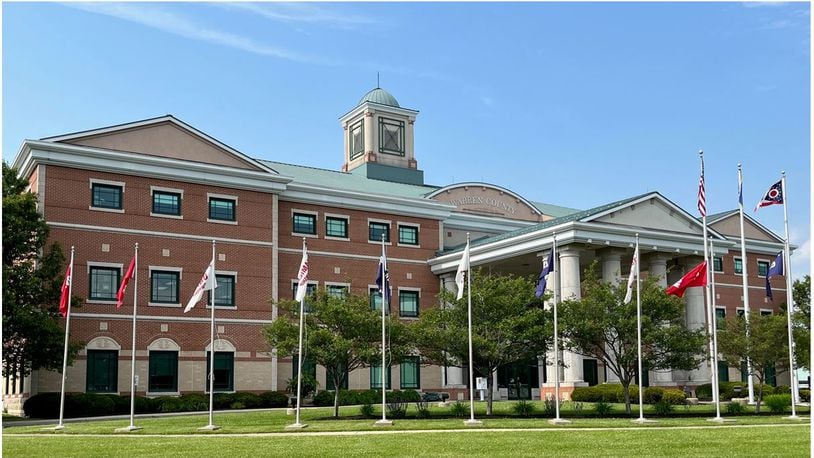“This is the cost of doing business,” Young said.
The water rates will be increased annually for the next three years, starting with the next billing cycle. The increases will be 7.5% in 2024 and 2025, and 5% in 2026, according to officials. The sewer rates will increase by 7% a year in 2024, 2025, and 2026.
The commissioners are expected to give final approval at their Tuesday meeting and the new rates would go into effect on April 1.
Sanitary Engineer Chris Brausch said inflation, higher operating costs and the need to repair, improve and expand infrastructure are why the county is increasing water and sewer user rates, water tap-in and sewer connection fees, and other fees and charges.
Brausch said the user fee increases are needed due to chemical, material and utility costs which have skyrocketed over the past few years.
At a previous hearing, Brausch told the commissioners that operating costs of the Water and Sewer Department have doubled over the past four years from $700,000 to $1.4 million. He said the department had to dip into its reserves to cover a $178,000 water operating deficit for 2023; and a $207,000 sewer deficit for 2023.
“We need to raise our rates to break even on the operating side in 2024,” Brausch said. “Our goal is to be more self-sufficient.”
Brausch also said the county’s focus on strong fiscal management, operating with a minimal staff, and building quality treatment plants in low rates for customers. He said these enterprise funds operate on tight margins and excess funds can only be used to cover the costs of system repairs and reinvested into that infrastructure. Brausch said the county system spends between $750,000 and $1 million in water line repairs each year.
Brausch said if the proposal is approved by the commissioners, an average customer’s bi-monthly minimum bill in 2024 would go to $35.32 for water and $33.48 for sewer or a total of $68.80 based on 6,000 gallon minimum usage, which is about 100 gallons a day.
Even with the proposed rate increase, Warren County’s rates would be among the lowest in the city of Piqua’s recurring regional survey of water and sewer rates.
Monthly water and sewer charges with a volume of 6,000 gallons would be $64.05, which is lower than rates in Mason, Lebanon, Franklin, South Lebanon, Greene County, Springboro, and Montgomery County. Only Butler County’s water and sewer monthly charges with a volume of 6,000 gallon would be less at $60.23 or 6% lower than Warren County, according to Brausch.
Brausch said the county is working on some major infrastructure improvement projects in its efforts to be more self-sufficient by the end of 2025.
Among the projects are the $5 million for improvements at the Richard Renneker System Water Plant; a $6 million project to install 32,000 feet of 24-inch water mains (which is about two-thirds completed); and the $3 million expansion of the Middletown Junction well field located along the Little Miami River between South Lebanon and the Peters Cartridge Factory.
Brausch said the well field expansion will provide an additional 3 million gallons a day in water capacity and would decrease the need to purchase water from Greater Cincinnati Water Works for the southern portion of Warren County. He said $5 million or one-third of the water operating costs goes toward the purchase of water for about 15% of the customers. The county contract with Greater Cincinnati Water Works expires at the end of 2025.
About the Author
